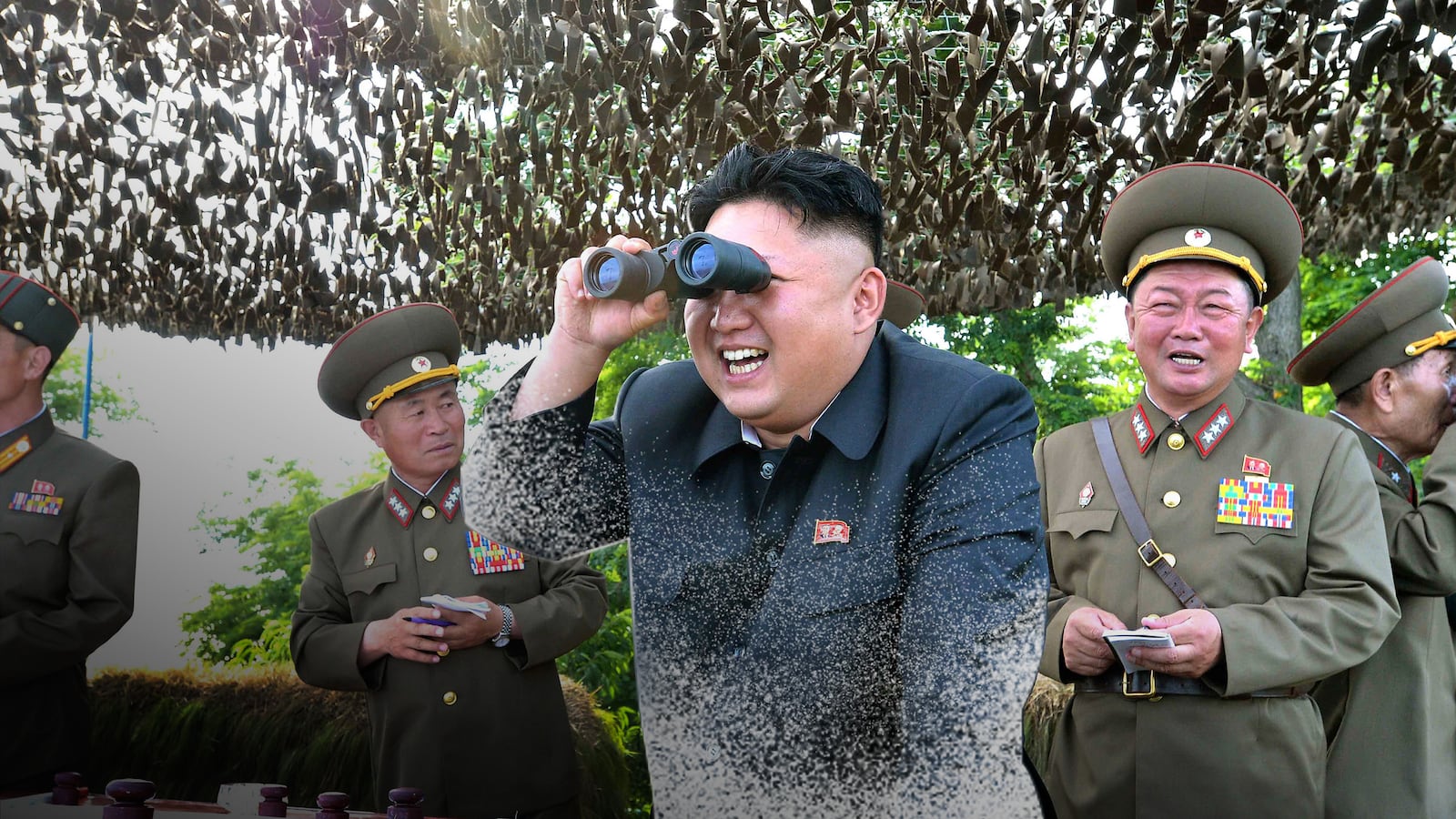Today, Kim Jong Un did not appear at any event commemorating the 69th anniversary of the founding of the Workers’ Party, heightening speculation as to his health and political standing in the Democratic People’s Republic of Korea.
Kim, the party’s leader by virtue of his position as first secretary, was also a no-show on Tuesday at an event marking the 17th anniversary of his father’s elevation to the top of the party. Kim’s skipping the event would ordinarily be considered a serious breach of the regime’s Confucian-inspired protocol, a failure to honor one’s father and predecessor.
So was young Kim disrespectful or indisposed? He has not been seen in public since Sept. 3.
Seoul and Washington apparently believe little is amiss in North Korea, however. “It seems that Kim Jong Un’s rule is in normal operation,” said a South Korean Unification Ministry spokesman on Friday.
“The last time was when everyone was predicting that Kim Jong Un would be pushed aside by his more experienced uncle,” said a “senior official” to The New York Times, referring to Jang Song Thaek. “And look what happened to him.” Jang, once considered the North’s second-most powerful official, was executed last December. At the time, most analysts believed Kim pushed aside his uncle in the most final manner possible.
It’s possible, however, that Kim was so weak politically that he could not protect Jang, married to his ailing aunt. Uncle Jang, acting essentially as regent, had ruthlessly purged opponents and grabbed lucrative revenue streams, especially from the military. So it is possible that those regime elements—and not Kim Jong Un—did in Jang in an act of revenge at the end of last year.
And this year, the victors in that vicious struggle have been attacking Jang’s nationwide patronage network, causing further turmoil throughout the North Korean state. With signs that Kim himself is now under stress, it is possible that those who had Jang killed have now sidelined the young leader as well.
Kim does not have to worry that he will be torn apart by large-caliber rounds, the most likely form of Jang’s execution. The regime depends on the Kim bloodline for its legitimacy—one of the reasons there is so much speculation about the role of his younger sister, Kim Yo Jong, in decision-making—so it’s likely he, a male in a male-dominated regime, will be kept as the public face of the ruling elite.
How will we know if Kim, when he eventually surfaces, is ruler or figurehead? As Felix Patrikeeff of the University of Adelaide suggests in a Daily Mail interview, the new leader is the one who becomes “prominent in the public eye” and eventually makes “significant announcements.”
This is why Gen. Hwang Pyong So’s visit to South Korea on Saturday is so fascinating, because here is a senior figure grabbing the international spotlight. Hwang, fresh from two significant promotions this year, apparently turned down a meeting with South Korean President Park Geun-hye on the weekend. That meeting would almost certainly made him too prominent for the liking of jealous officials in Pyongyang, but we will know he is the new boss if he meets with her in the not-too-distant future.
Now that “Fatty the Third,” as Kim is known in some quarters in China, has missed two important ceremonies in a week, the big issue is whether Hwang can eventually signal dominance in a new ruling group in Pyongyang.






